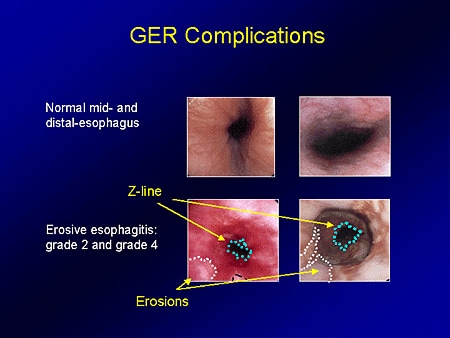It is important for someone with chronic heartburn symptoms to have an endoscopy the most important thing to look for is barrett’s esophagus, a change in the lining of the esophagus that is associated with an increased cancer risk. Egd gerd. An esophagogastroduodenoscopy (egd), often referred to as an upper endoscopy, is an invasive procedure that can help in evaluating and managing several conditions that involve the upper gastrointestinal (gi) tract— which is composed of the esophagus, stomach, and upper portion of the small intestineusing the mouth and throat for access, a fiberoptic endoscope equipped with a camera is used.
egd gerd
Egd may be done if you have symptoms that are new, cannot be explained, or are not responding to treatment, such as: black or tarry stools or vomiting blood; bringing food back up (regurgitation) feeling full sooner than normal or after eating less than usual; feeling like food is stuck behind the breastbone; heartburn. Upper endoscopy is generally used for patients with acid reflux who do not respond to medicine (proton pump inhibitors) to decrease gastric acid production for a period of four to eight weeks, or. Continued diagnosing acid reflux with endoscopy or egd. during an endoscopy, the doctor inserts a small tube with a camera on the end through the mouth into the esophagus. this enables the doctor.
